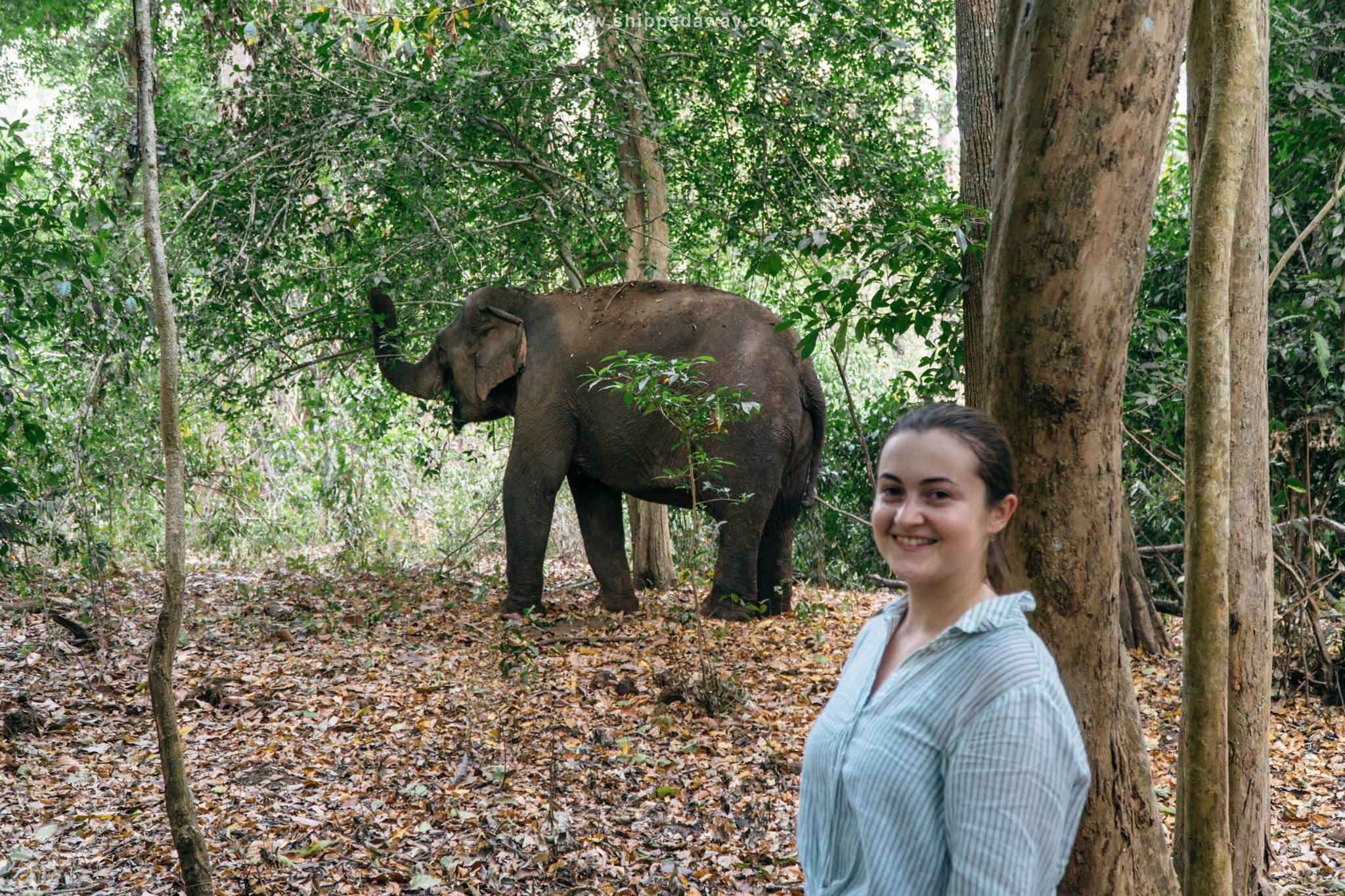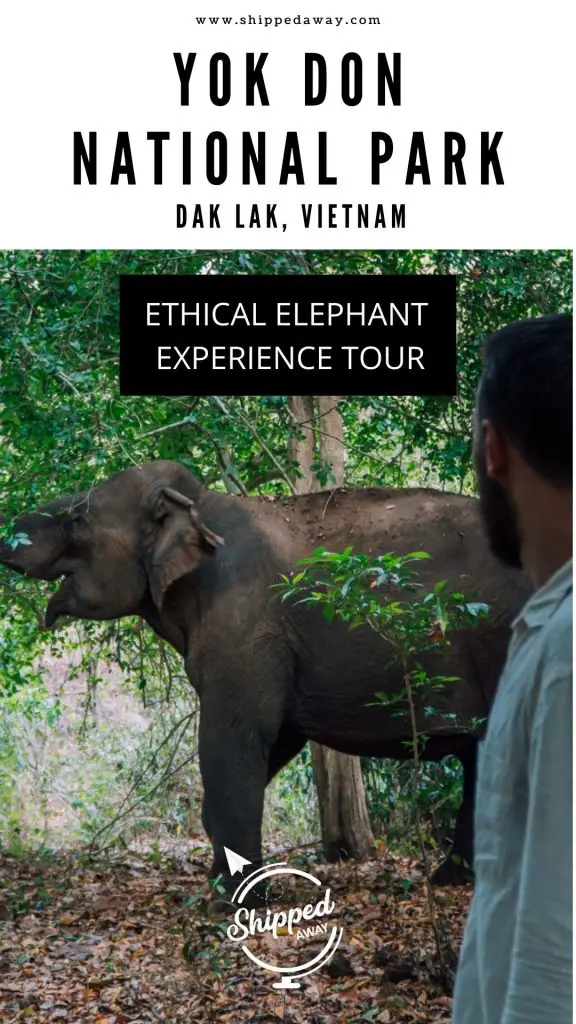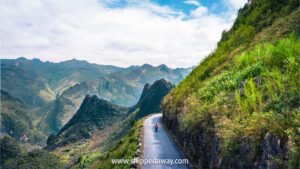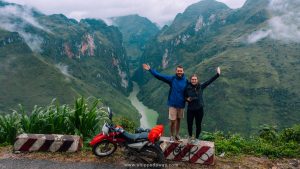History of elephants in Vietnam and Dak Lak
Vietnam used to have thousands of elephants before, with quite a significant population in Dak Lak in the country’s central highlands. That is unfortunately no longer the case, and there are only about 100 wild elephants in total left in Vietnam. That is a concerning number, and according to conservationists, it’s not viable for survival.
In the past, the people of Dak Lak hunted down elephants and trained them to become their few tonne workers. Their size and strength allowed the people to do tasks that were otherwise immensely harder. For example, they pulled logs from cut trees and transported other heavy cargo.
Nowadays, though, when machines are readily available, these elephants proved of no use anymore. So instead, their purpose has shifted to offering rides and bathing experiences for tourists. And that’s a pretty good business for them.
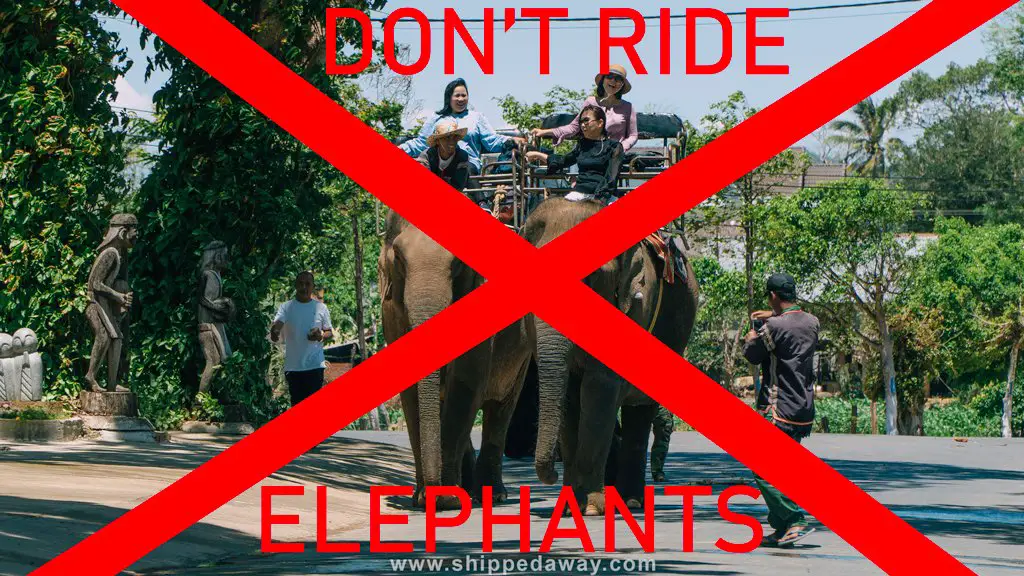
Therefore, nobody cares for the animals as much as they did before. Before, they were a part of their family, and people’s livelihoods directly relied on the elephant’s survival and well-being. But not anymore, and that’s the reason why they are being abused now. Several elephants died from exhaustion due to the elephant riding industry, and that has to stop.
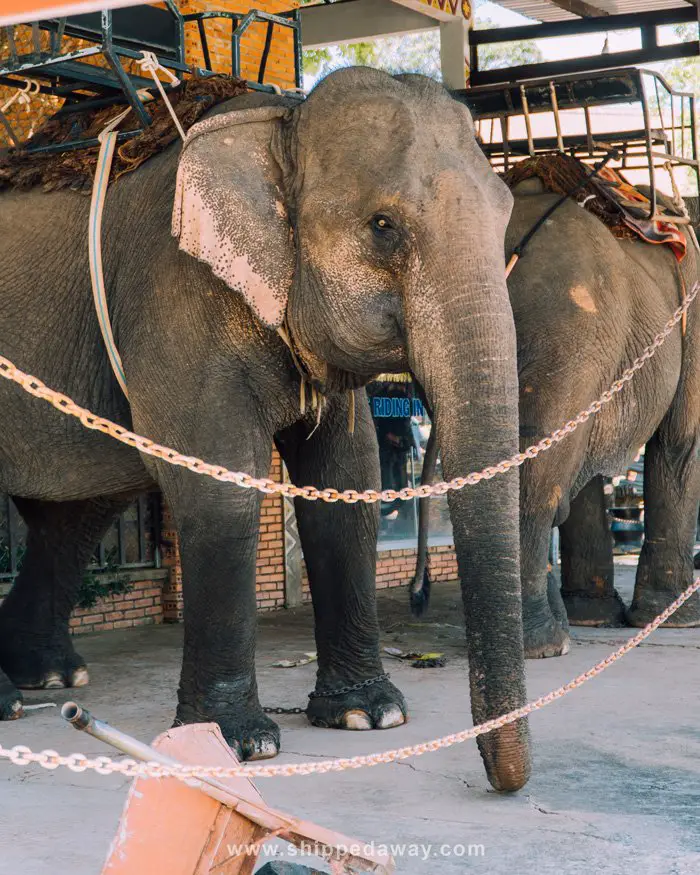
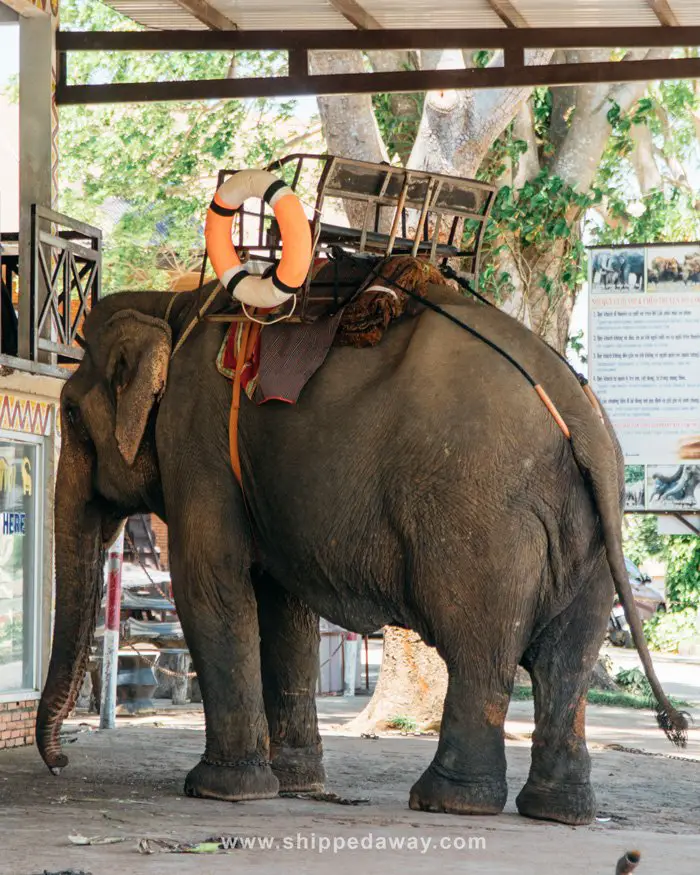
New model for elephant tourism in Yok Don National Park
Yok Don National Park is the first park in Vietnam to start a new model of ethical elephant tourism without any abuse. They started this model a few years back in cooperation with Animals Asia. You can now join the elephant watching experience, where your only interaction is observing them in their natural habitat.
It’s an “observe, not disturb” model, an excellent example of what others should adopt, not only in Vietnam but all over South East Asia.
Traveling to Vietnam soon?
Vietnam e-Visa 2024: How to enter Vietnam (Full Guide)
(Updated with new rules from August 15, 2023)
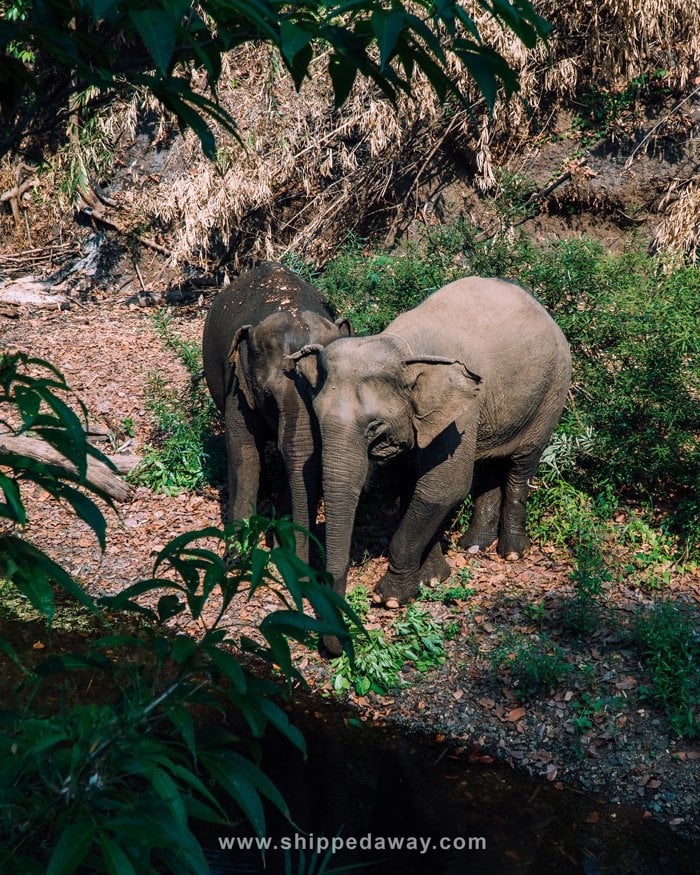
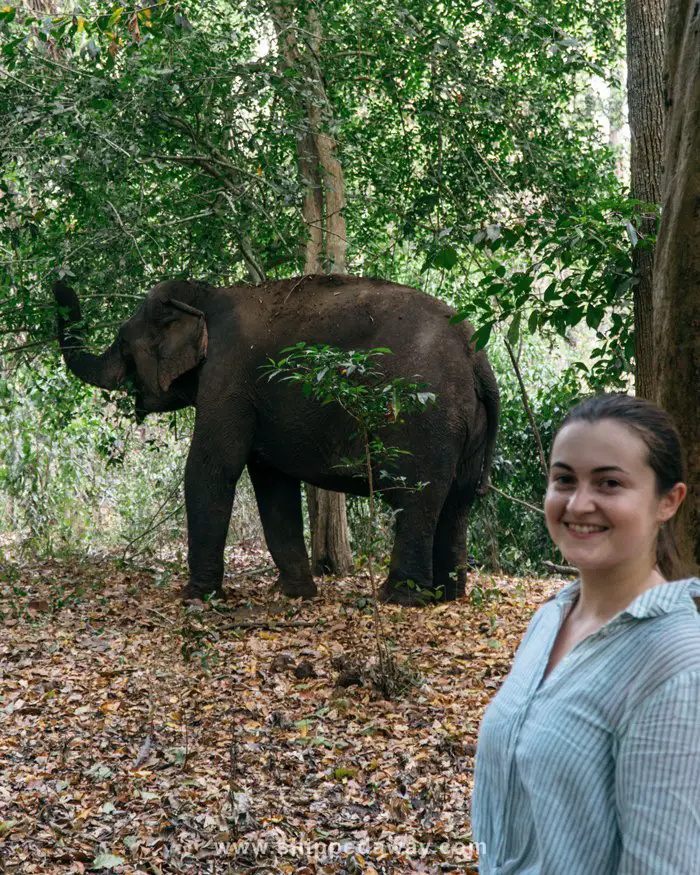
They buy off the elephants from locals that in the past used them for work, but nowadays primarily for tourism activities like elephant riding, bathing, and photoshoots. The elephants are usually brought into the park alongside their handlers, so-called mahouts. They are their carers and many times have lived with them for decades.
As of May 2021, there are five elephants in the program, as the sixth one, called H’Non, recently passed away.
Vu Duc Gioi, Deputy Director of the Environmental Education and Services Centre under the Yok Don National Park, said their goal, with the help of Animals Asia, is to develop a kind of elephant sanctuary and save all the elephants from the area.
All this comes at a high cost. However, you can help them out in their mission to preserve and protect these magnificent animals by simply visiting the park.

Check out our blog about things to do in Yok Don National Park.
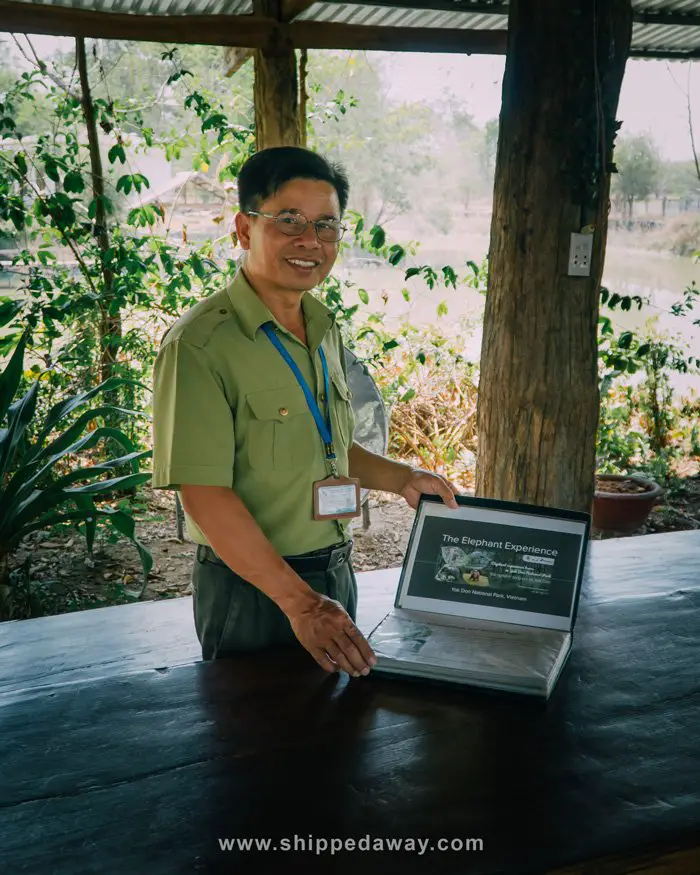
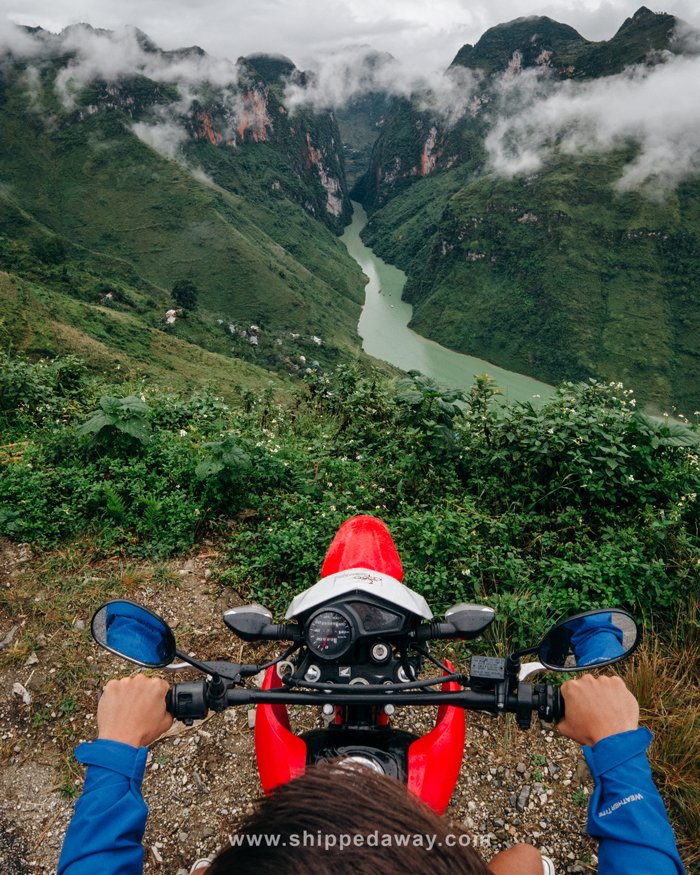
Need reliable Travel Insurance for Vietnam?
With 24/7 worldwide assistance, Heymondo insurance includes comprehensive coverage for medical expenses, trip cancellations, and baggage loss or delay.
For digital nomads or full-time travelers, we recommend SafetyWing, which includes brief visits to your home country every 3 months abroad.
What does the ethical elephant experience tour look like?
The tour starts with a short motorbike ride to the forest entrance. From there, you begin a short trek to find the elephants. It didn’t take us long, as the mahouts are always there with them, so they signaled us where they are. After that, you’re following the elephants around the forest and observe their daily life. Spoiler alert: they eat a lot. 😅
Depending on the tour you book, you’ll be there for at least a few hours. You’ll also learn a lot as the guides will tell you more about the flora and fauna of the area, and you’ll hear the stories of each elephant.
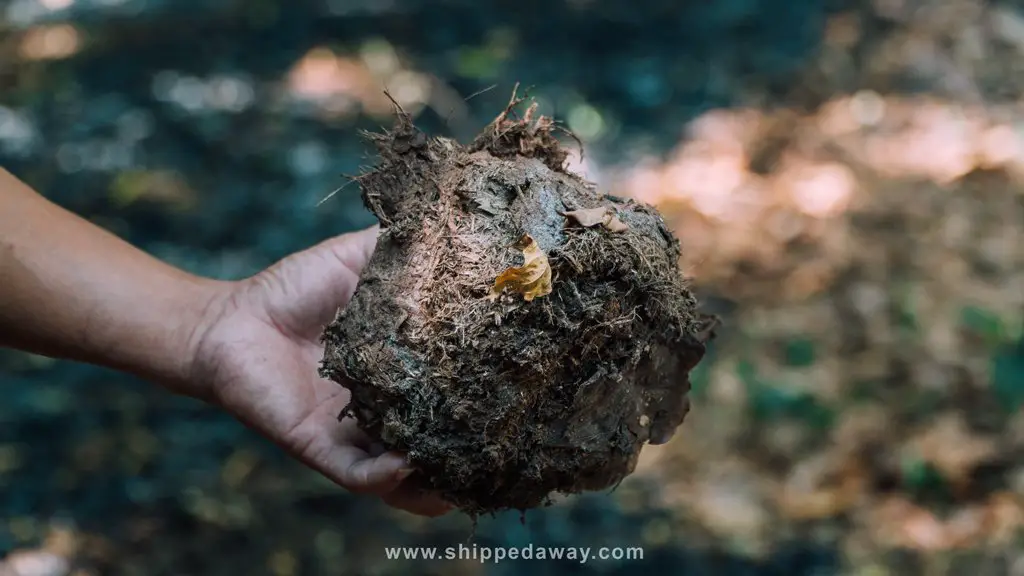
Things to know before going on the tour
The tour might include going through the bushes and mud to get the best view of the elephants. Therefore, make sure to dress appropriately. Long clothes are recommended (especially if you have sensitive skin, as Arijana does). Take something comfortable and sporty, and sneakers are a must.
Make sure to apply sunscreen, especially if you’re visiting during the dry season, and take enough water.
It was super hot when we visited, so small towels for wiping all that sweat will be useful.
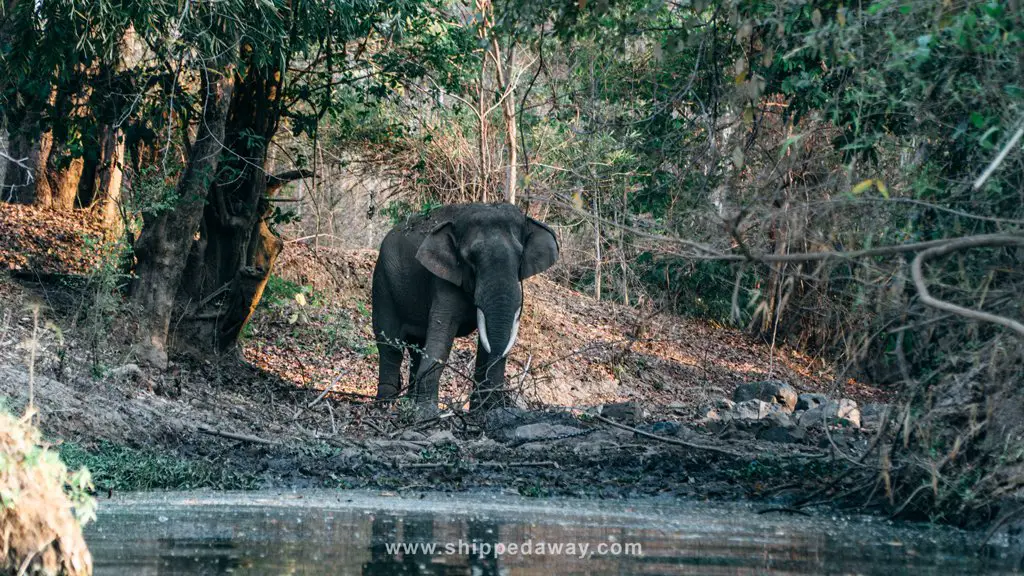
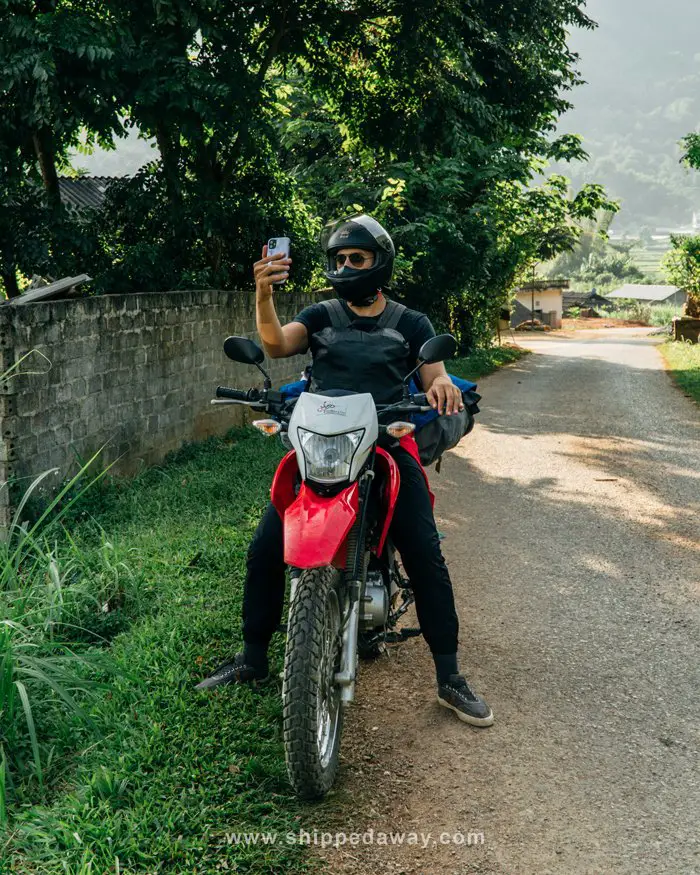
Need a reliable mobile package to stay online in Vietnam?
After living in Vietnam for almost two years, we highly recommend the affordable eSIM packages from Gigago. These packages also include a local number for ride-hailing and other services.
Tip: Shipped Away readers get 5% off with the code SHIPPEDAWAY
Also read:
Best Vietnam SIM Cards
Is Yok Don National Park a legitimate elephant preservation?
Yes, Yok Don National Park is a legitimate elephant preservation, and here’s why.
We’ve been asked on numerous occasions if they are indeed legitimate, and we can happily confirm that they are. Yok Don National park is partnered with organizations like Animals Asia, WWF, and Olsen Animal Trust. Thus, there are controls in place at all levels. You can also find Animals Asia employees at the park, who oversee the whole operation.
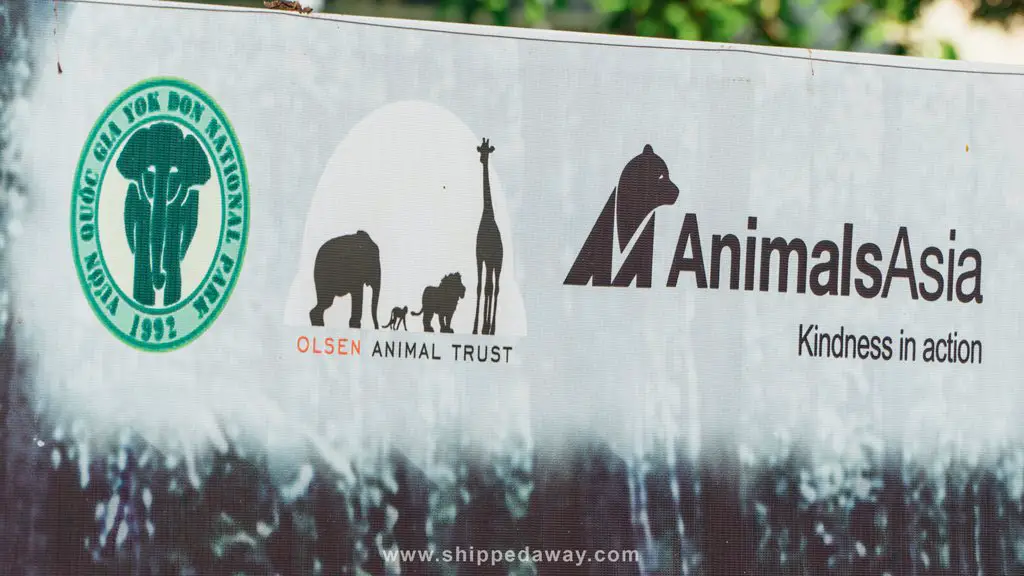
Unlike some other “preservations” in locations like Thailand, Bali, and Laos, Yok Don National Park’s ethical elephant experience is the real deal, and it warms our hearts that it’s right here, in Vietnam.
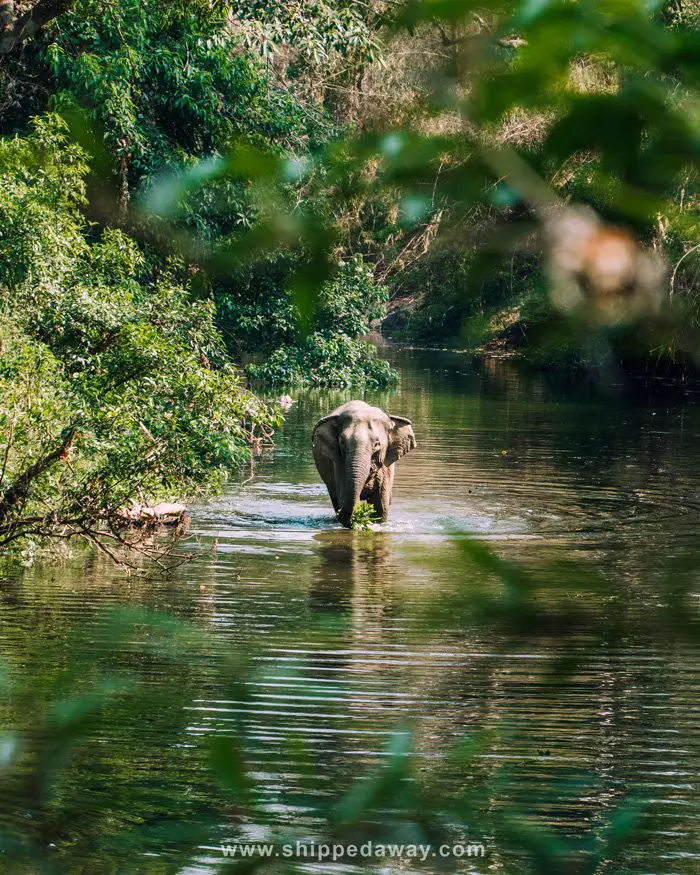
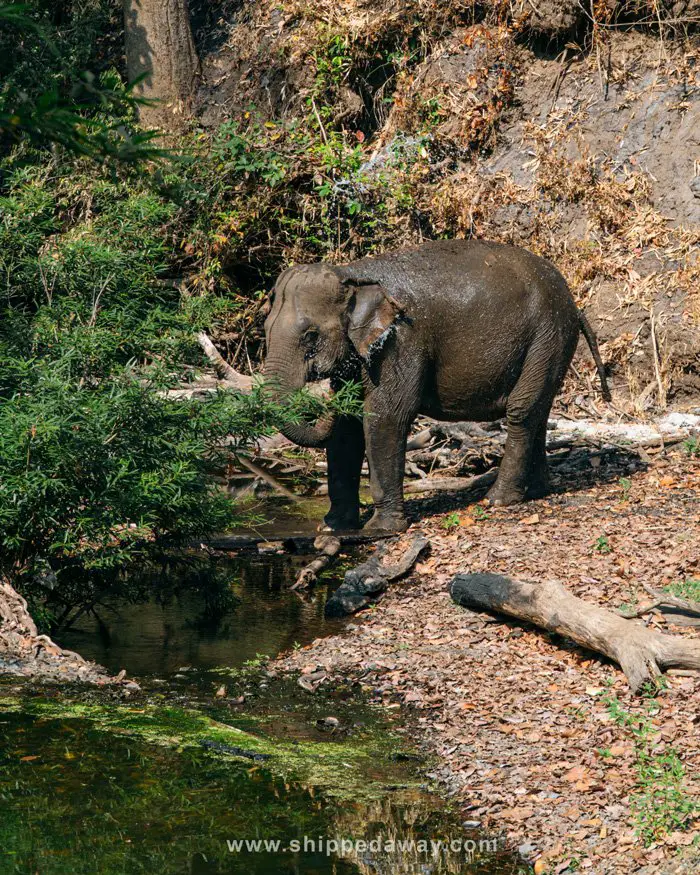
Things you can’t do
You can not touch the elephants
Touching elephants is strongly discouraged and frowned upon, even though they are most likely already used to it, considering their life of abuse before coming here.
You can not bathe or wash the elephants
Bathing or washing elephants itself might not seem as unethical or a problem at all, but you have to understand the process it took for the elephant to accept humans touching it.
You can not ride the elephants
Riding elephants is wholly banned at Yok Don National Park.
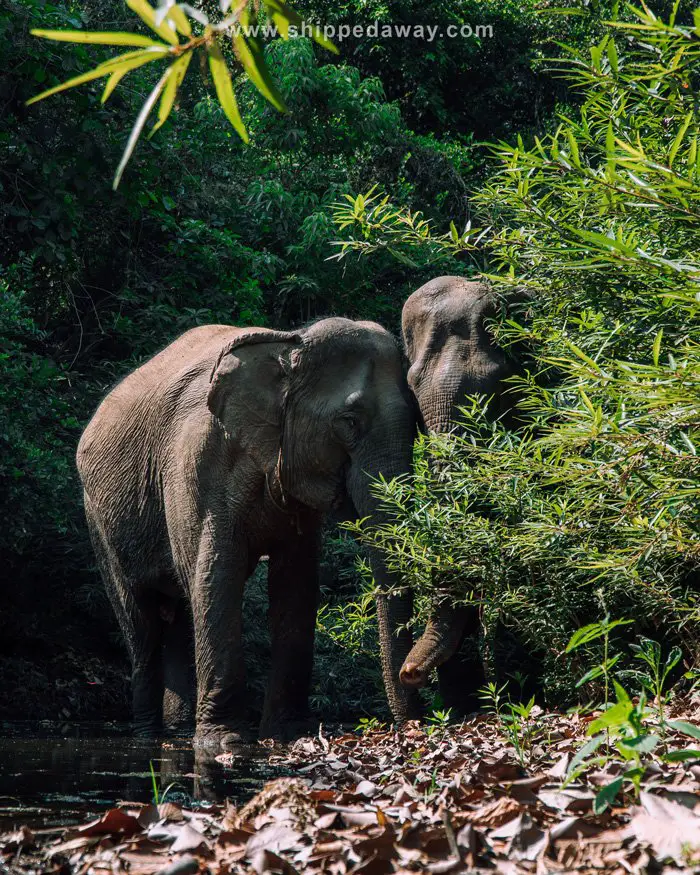
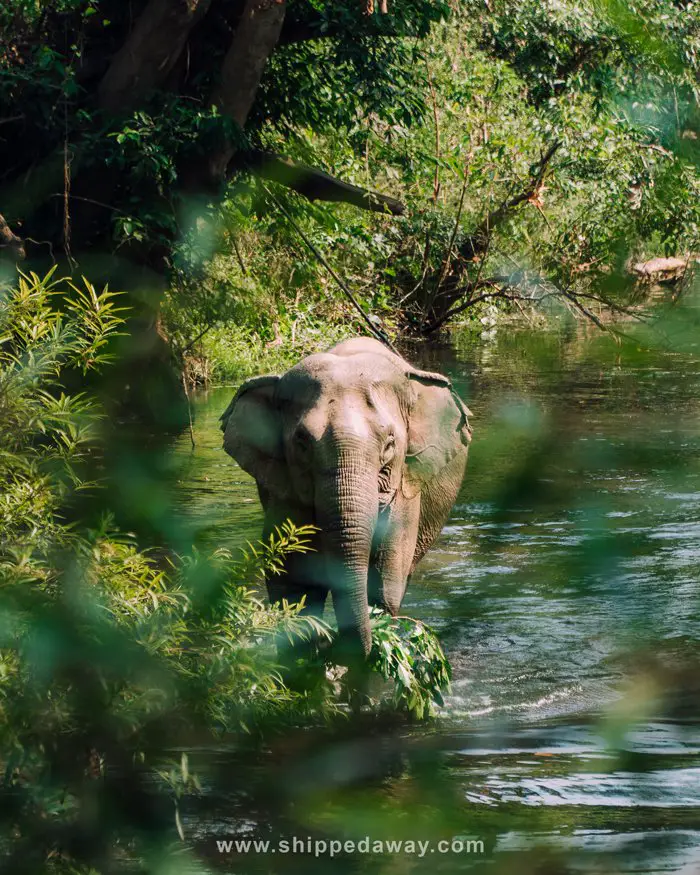
The truth behind most elephant sanctuaries in South East Asia
Many so-called elephant sanctuaries across South East Asia deceivingly claim to be ethical and that their riding elephants are treated well, and they NEED the rides. Also, they offer elephant bathing experiences and photoshoots up close with or on them.
All in all, we can say that no elephant sanctuary is ethical when they offer rides or bathing. Those things do not go together, and they never will. So please, do not support those practices.
Unfortunately, they all have a very well-crafted story that can easily fool most people who never researched anything about elephants themselves.
Arijana’s personal experience in Bali
In 2018, I visited a lodge that is supposedly an elephant sanctuary. I hate to break it to you, but BALI HAS NO ELEPHANT SANCTUARIES. At that time, I didn’t know much about this topic, but they had a perfect story they told to every visitor that took a ride without you even asking any questions. And they made it seem like they’re actually helping elephants. The worst thing with these lodges is that the elephants do look healthy and often are not chained up, so you would never think they were abused. But just the fact that it was a lodge where you can stay overnight should have made it clear to me.
I’ll write more about my experience soon as I still see many famous travel bloggers recommending the place in Bali. When I started educating myself about this topic, I contacted Karmagawa, who did proper research on this place, and yes, it’s not even close to a sanctuary.
Make sure to subscribe to our newsletter to be notified about this upcoming article.
How elephants are trained for riding
Elephants are trained using a cruel process called the crush, and it involves placing the elephant in a small cage, and tying them up with chains and ropes, so they can’t move and kick around. This way, they completely crush the elephant’s spirit, and it becomes fully submissive to its future owner.
Also very important to mention is that the elephant crushing process often involves punishments in the form of beatings and stabbings.
Read more about elephant crushing on Wikipedia.
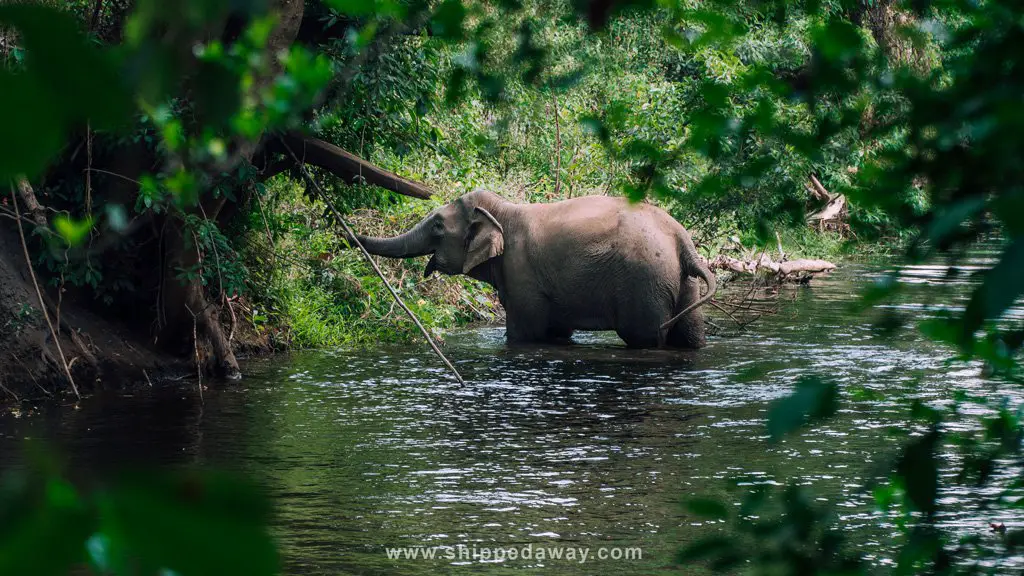
Stay protected on public WiFi
We’ve been using NordVPN for over 5 years now and can highly recommend the tool for protecting your privacy and freedom while browsing the internet.
It encrypts your connection and hides your data from potential hackers. Also, with a VPN, you can access blocked/restricted content like some Netflix movies or booking sites.
TIP: Shipped Away readers get a special deal.
The relationship between the mahout and the elephant
A Mahut or mahout is an elephant’s handler or rather a keeper. They often start their career as young boys and live their lives alongside elephants.
We are unsure if the mahouts in Yok Don National Park are the elephants’ owners from before. They might be employed as handlers when an elephant arrives at the park. However, we know of at least one living with his elephant for the last 30+ years.
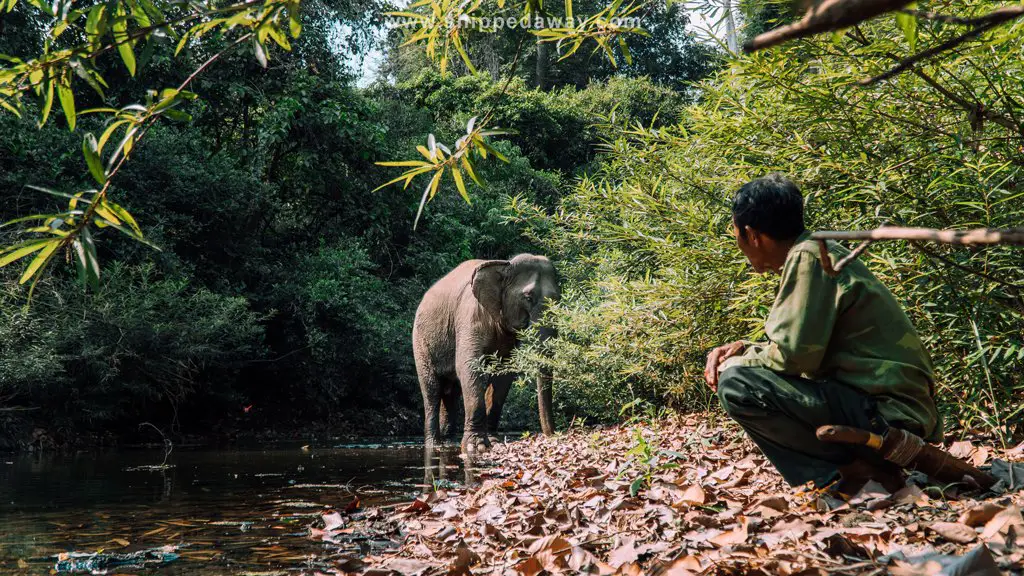
Hence, the mahouts join the elephants in the national park’s ethical elephant experience tours. They most likely get paid well enough to be worth it for them, as that is their main livelihood. Hopefully, more tourists will choose the ethical experience and increase elephant owners’ willingness to give up their elephants. However, often it’s a costly business and involves thousands of dollars.
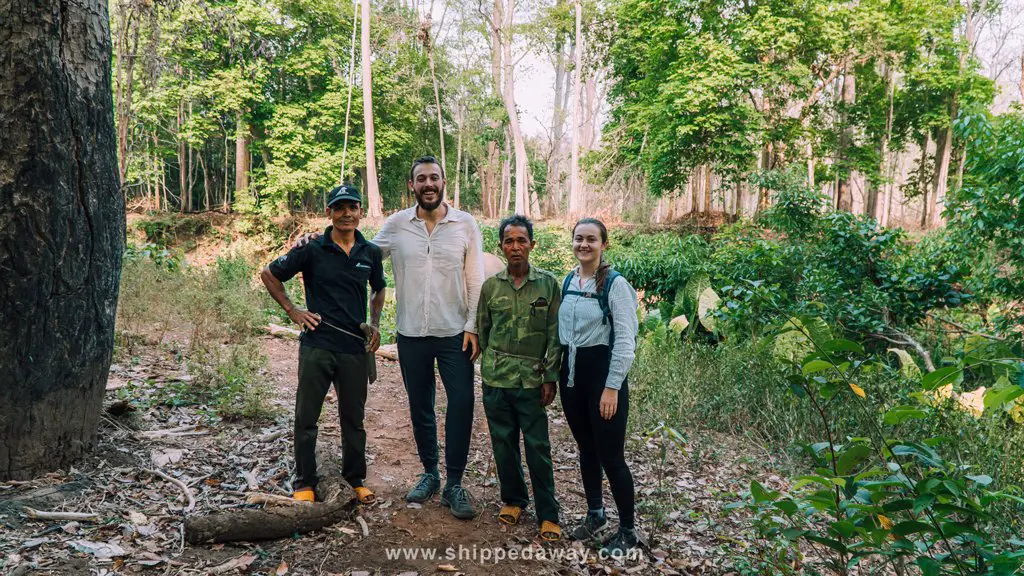
Elephant riding is unfortunately still happening outside the park
Although Yok Don National park adopted an ethical elephant experience model that allows elephants to live undisturbed and not ridden, there are still places around the park and in the Dak Lak province that enable tourists to ride elephants.
The most infamous ones are at Buon Don and Lak Lake.
We spent a few days at Lak Lake, and before leaving, we went for a short motorbike ride, and this is what we saw.
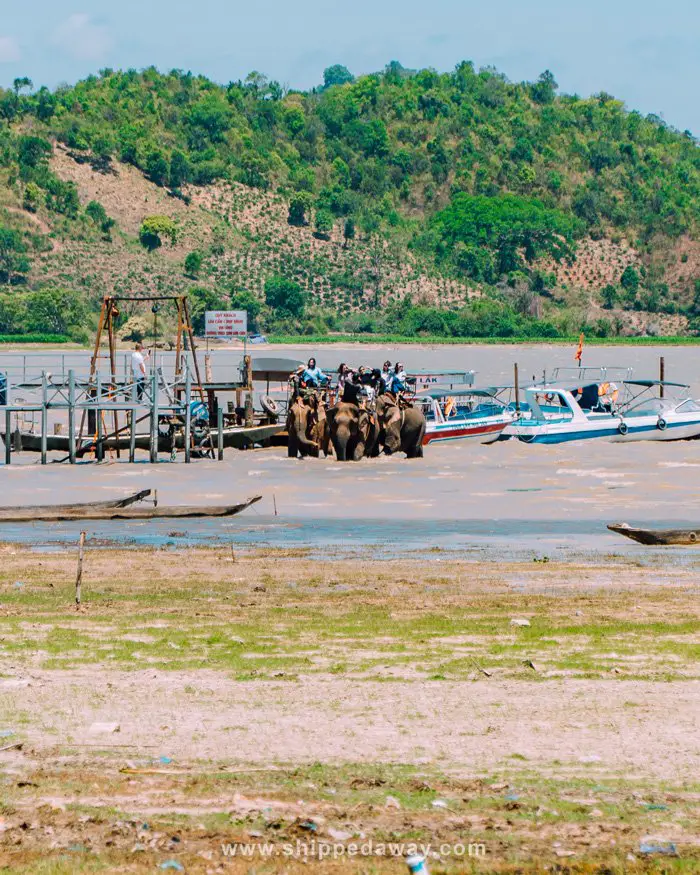
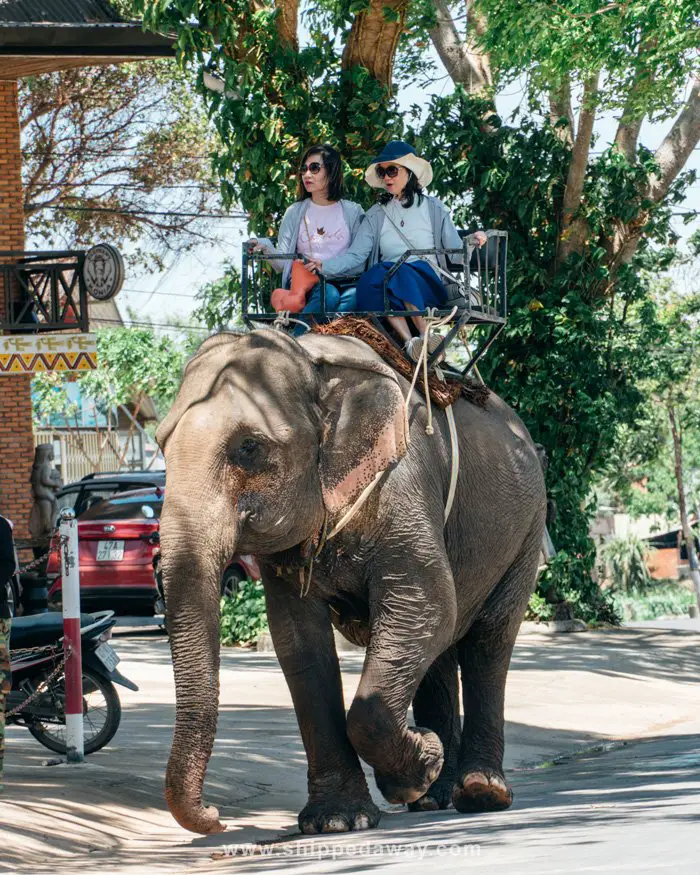
These elephants are chained and in terrible condition. You see that straight away, and it was such a heartbreaking scene. If you ever visit Dak Lak, avoid these places!
Support the transition towards ethical elephant tourism
You can help support the transition to elephant-friendly tourism in Vietnam by participating in any tours that the national park offers. It allows them to expand their ethical elephant experience model further and bring in even more of them.
Let’s help in making this dream a reality. Let’s save elephants from their sorrowful, abuse-filled lives.
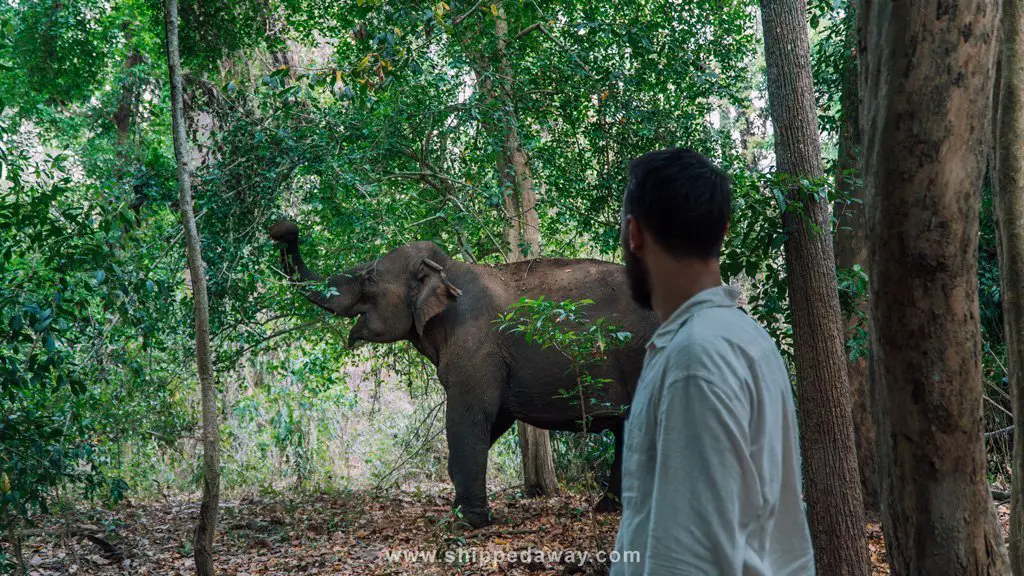
DISCLAIMER
This is not an attack on people skillfully tricked into thinking that an elephant sanctuary is there for anything other than earning money. The visitors are often families that want their kids to experience something extraordinary or someone who just wants to see an elephant for the first time. And these places are everywhere, often in the tourist hotspots (go figure), with a fantastic storyline that makes you believe they care about the elephants more than anyone else. Make a change and teach others about this.
If you plan on visiting South East Asia or particularly Vietnam and would like to get to know these magnificent animals, please do it in Yok Don National Park.
We hope this article resonates with you and gives you a better insight into the harsh reality of using elephants for tourism purposes.
Looking for more travel guides and Vietnam travel inspiration?


